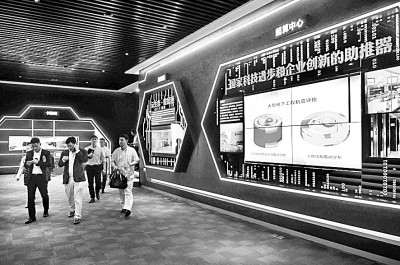How To Balance Artificial Intelligence With Ethics? The Big Guy At This Seminar Said This
How To Balance Artificial Intelligence With Ethics? The Big Guy At This Seminar Said This
Chao News Client Correspondent Liu Jianping, Jiang Yiwen, reporter Lu Fang, recently, the 2025 Annual Meeting of the Zhejiang Ethics Society and the academic seminar on "Ethics Research and Zhejiang Practice in the Artificial Intelligence Era" were held in Wenzhou.
Chao News Client Correspondent Liu Jianping, Jiang Yiwen Reporter Lu Fang
Recently, the 2025 Annual Meeting of the Zhejiang Ethics Society and the academic seminar on "Ethics Research and Zhejiang Practice in the Artificial Intelligence Era" were held in Wenzhou. More than 150 experts, scholars and teachers and students from many domestic universities, research institutes, academic groups and other institutions attended the meeting and exchanged to discuss ethical development, gather the wisdom of the academic community, and contribute Zhejiang's ethical thinking and practical experience to build a responsible and good artificial intelligence future.

Huang Huo, director of the Zhejiang Federation of Social Sciences Associations, pointed out that artificial intelligence technology is reshaping the world at an unprecedented speed and scale. The rapid development of AI poses severe challenges to ethics, and also provides opportunities for reconstructing ethical theories and innovating research methods, and injecting new vitality and mission into ethical research. He emphasized that the Zhejiang Provincial Ethics Society should strengthen interdisciplinary dialogue, promote in-depth cooperation between ethics scholars and technical experts, policy makers, and the business community, and jointly build ethical standards that conform to technical laws and human needs; focus on "Zhejiang Practice", combine the province's digital reform and scientific and technological innovation frontiers, carry out targeted research, and provide ethical support and decision-making reference for provincial governance; we should be committed to the popularization and dissemination of ethical knowledge, enhance the public's ethical awareness, and create a social atmosphere of technology-for-goodness.

Professor Lu Yijun, director of the Zhejiang Provincial Key Research Base for Philosophy and Social Sciences (Wenzhou Medical University Medical Science Research Institute), emphasized that the core task of ethical research is to ensure that technology is always "people-centered" and that ethical research is an important guarantee for ensuring that technology is people-oriented. He hopes to promote academic exchanges through this seminar and explore the balance path between artificial intelligence and ethics.

Academic seminars are divided into keynote speeches and conference forums. In the keynote speech, Yang Yiqin, vice president of the Chinese Ethics Society and editor-in-chief of "Moral and Civilization" of Tianjin Academy of Social Sciences, took the theme of "Principles of the Construction of Applied Ethics in the Artificial Intelligence Era" and proposed that applied ethics in the Artificial Intelligence Era must follow the three principles of people-oriented, fairness and justice, and based on Chinese practice. We must adhere to human subjectivity, ensure AI services to the whole, and solve local problems in combination with traditional ideas of "benevolence", "ritual" and "harmony", and provide the world with Chinese experience.

Professor Lu Yijun pointed out that AI reshapes the medical ecology, while technologies such as telemedicine and AI diagnosis are popularized, it also leads to problems such as reduced communication between doctors and patients, algorithm bias, and lack of humanistic care. Medical education needs to build "digital humanistic competence", integrate technology control, ethical judgment and humanistic care capabilities, and reshape paradigms with virtual and real scenarios, so as to cultivate new era doctors with both technical capabilities and humanistic warmth.
At the conference forum, scholars had a warm exchange and discussion on the theme of "Ethical Research and Zhejiang Practice in the Artificial Intelligence Era". (Picture provided by the organizer)





